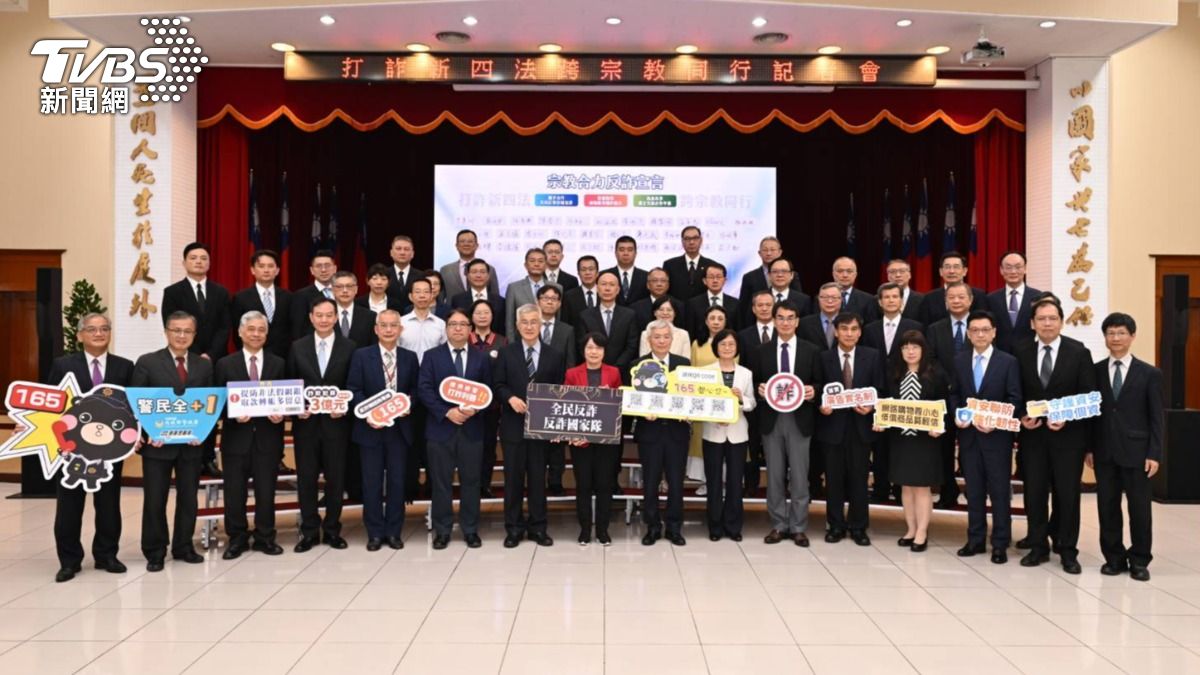TAIPEI (TVBS News) — Minister of the Interior Liu Shyh-fang (劉世芳) on Wednesday (Aug. 21) invited representatives from various religious groups to co-sign the "Joint Religious Anti-Fraud Declaration" (宗教合力反詐宣言) The initiative aims to leverage the power of faith to establish a volunteer network that promotes anti-fraud awareness, aligning with the Executive Yuan's anti-fraud goals.
Liu noted that after the president enacted the "four anti-fraud laws" in July, the National Police Agency (NPA) began collaborating with religious and ceremonial departments. This collaboration aims to invite religious groups to serve as the "National Anti-Fraud Advocacy Team" seed instructors.
NPA Director-General Chang Jung-hsin (張榮興) emphasized the police's ongoing efforts to deepen their partnership with religious groups, aiming to promote a long-term, in-depth anti-fraud advocacy model to strengthen the public's ability to combat emerging fraud techniques.
Following the formation of the new government, the NPA convened an inter-ministerial meeting with 17 ministries and councils to integrate anti-fraud efforts. The Criminal Investigation Bureau was tasked with planning activities and visiting religious group representatives, receiving full support from authorities.
At the press conference, officials planned a digital signing ceremony for the "Joint Religious Anti-Fraud Declaration." The Executive Yuan's Anti-Fraud Office, along with the Ministry of the Interior, the National Communications Commission, the Financial Supervisory Commission, the Ministry of Digital Affairs, and the Ministry of Justice, led the signing, demonstrating the government's commitment to combating fraud.
The initiative seeks to utilize religious groups' organizational and mobilization capabilities, combining them with volunteer networks to promote anti-fraud education. By sharing advocacy materials and cultivating community anti-fraud advocates, the initiative aims to make anti-fraud information widely accessible and part of daily life, building a robust barrier against fraud.



